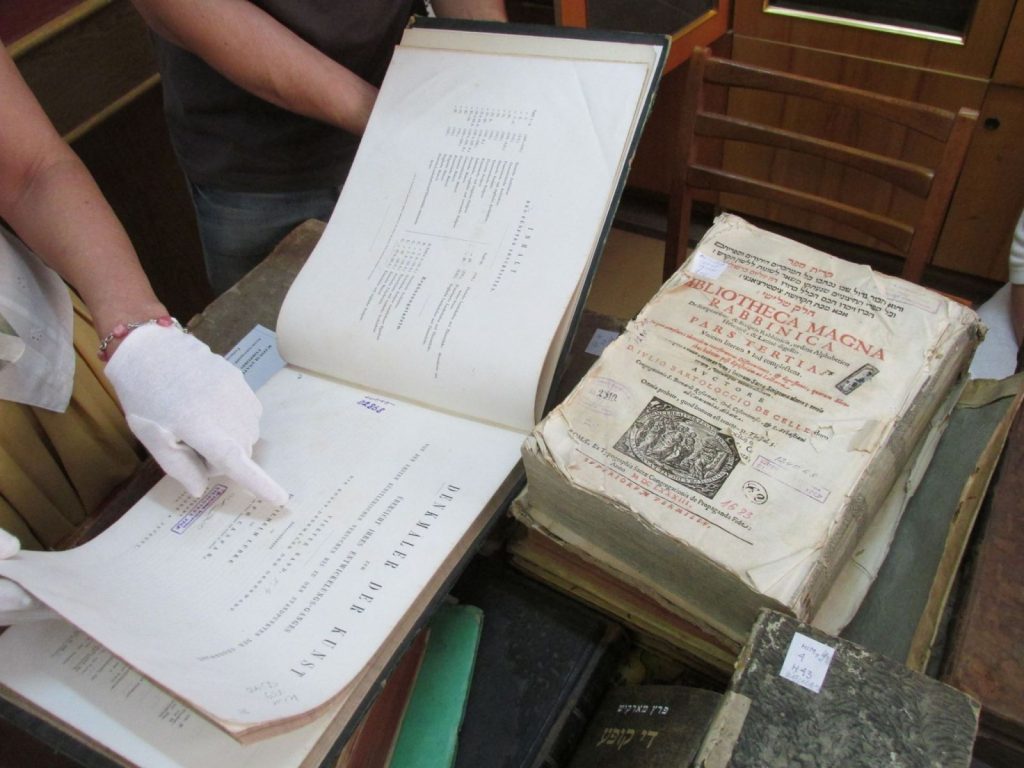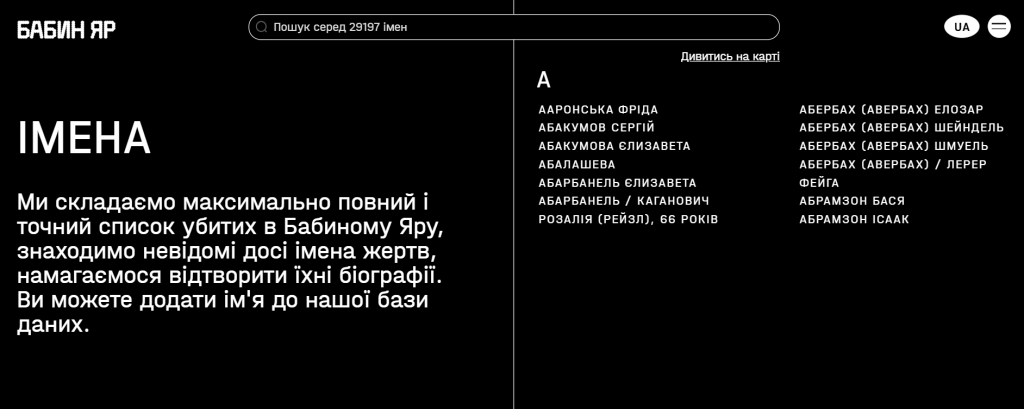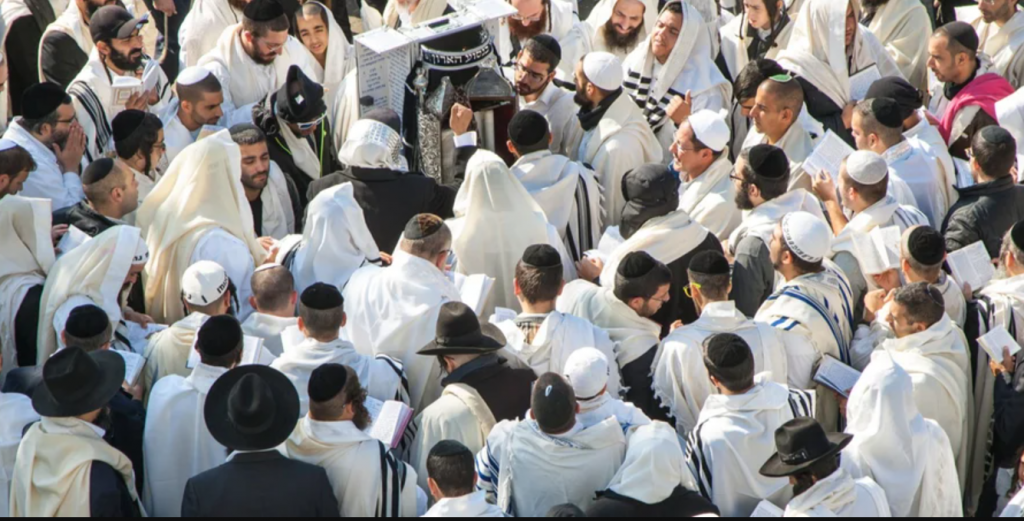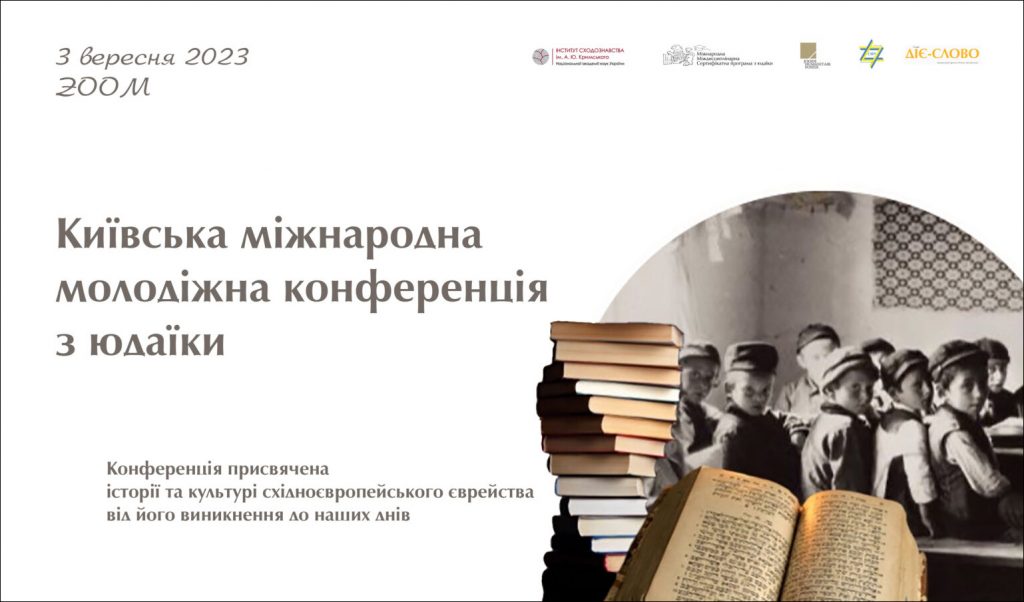Level of Jewish studies is an indicator of a country's academic development — Yuri Radchenko

Our guest is Yuri (Amir) Radchenko, Ph.D. in History, co-founder of the Center for Interethnic Relations Research in Eastern Europe, and acting rabbi in Masoret, a traditional (conservative) Jewish community in Kyiv.
International conference on Jewish studies
Yuri Radchenko: I am a participant, rather than an organizer, of this conference. It was organized by the Certificate Program in Judaic Studies, which is now affiliated with the Ahatanhel Krymsky Institute for Oriental Studies. It was a two-day conference that involved primarily students currently writing their diploma papers on the history of Jews, mainly in Ukraine. A wide variety of topics were addressed. Academic historians also participated, for example, Dmytro Tsolin, a well-known specialist in Aramaic. The participants researched a variety of topics, from Hasidism to Zionism and so on. It was, in fact, an academic conference.
Such conferences have been held in Ukraine for many years, since the mid-1990s, by various organizations, such as the Center for Interethnic Relations Research in Eastern Europe. This center organizes conferences like that in Kharkiv, Rivne, Melitopol, Chernivtsi, etc. Then, there is the Ukrainian Association for Jewish Studies. People and organizations are engaged in specific conferences that address, for example, the topic of the Holocaust. These include the Ukrainian Center for Holocaust Studies in Kyiv and the Tkuma Center in Dnipro. This is a broad academic topic that involves people of different faiths and approaches. These are not narrow ethnic or religious meetings.
From my point of view, the level of Jewish studies is an indicator of a country's academic development. It shows how knowledgeable people are about certain terms, things, etc. Unfortunately, this conference was held online, but I hope we will return to normal activities.
Enlightenment
Yelyzaveta Tsarehradska: What basic knowledge in Jewish studies would it be desirable for the public to have?
Yuri Radchenko: This is a deep and interesting question. In short, I would distinguish academic research and education here: school education and university education. I have been researching the Holocaust in Ukraine for 15 years. For me, the question is the formation of the Ukrainian School of Holocaust Studies and the general level of scholarship in Ukraine. Most likely, the school is still taking shape, but I will say this. What always jumps out at me when I look at researchers studying the Holocaust in Ukraine and abroad is their complete or almost complete ignorance of the history of the Jews before the Holocaust, ignorance of their culture, religion, and traditions. This applies also to scholars of Jewish origin. Of course, the pandemic and full-scale war have undermined and continue to undermine the normal and adequate development of sciences in Ukraine in general, affecting the development of Jewish studies, among other things.
Regarding education, textbooks on the history of Ukraine, for example, should be written from the position of multiculturalism in a positive sense. They should proceed from the understanding that all peoples that inhabited Ukraine lived and worked here. They either left or were killed, but their legacy remains here. This is interesting in its own way, I believe. When talking about the tragedy of Babyn Yar in Kyiv, textbooks often fail to provide any information about who the Jews are in general, what they did, what their cultural heritage is in Ukraine, and how they live now. Few people are interested in this.

More literature and websites should be published on the more popular level. In recent years, there was a widespread practice when you could scan a QR code in a particular area and read information about the street, building, or people who lived there.
Yelyzaveta Tsarehradska: It worked. People liked it.
Yuri Radchenko: Some cities in Ukraine are perceived as multicultural, such as Melitopol, before the full-scale war. However, when you come to Melitopol, you see that it's monoethnic. The descendants of the Karaites and a small number of Jews or Crimean Tatars remain there, but it looks different in reality. And this is a problem of not only ethnic Ukrainians.
I once talked with my friend, a Crimean Tatar, who went to Istanbul. I told him: "Go to the synagogues in Istanbul." And he asked: "What, there are synagogues in Istanbul?" I cannot imagine Istanbul without a synagogue and Karaite kenesas. It was one of the centers where Jews developed and created their culture. Famous rabbis, scholars, and prominent Jewish figures lived there.
Unfortunately, normal understanding, reflection, and learning are possible only when there is peace and a stable society. It becomes a challenge in a war situation. How can we pursue such enlightenment and academic research without sliding into propaganda?
About Rosh Hashanah
Yuri Radchenko: Rosh Hashanah is a very popular holiday. On the other hand, it is very stereotypical. Unfortunately, most Jews in Ukraine and the world do not observe halakha, the religious law and traditions. There is a perception that Rosh Hashanah is the Jewish New Year, extrapolated to the European New Year on 1 January.
In fact, Rosh Hashanah is a holiday that, according to Jewish tradition, is the Day of Judgment. There is this stereotype that, for example, Yom Kippur is called Judgment Day. And it's wrong because according to Jewish tradition, the Day of Judgment is precisely Rosh Hashanah. The verdict is sealed on Yom Kippur. The ten days between these two days are terrible, scary days when you must repent more, do good things, study Torah more, try to mend your ways, etc. Certain rituals and traditions are prescribed during Rosh Hashanah. Work is prohibited, and you can't light a fire. If you take an orthodox or conservative approach, we don't use phones, computers, and things like that. And there are special prayers in the evening and two days following the holiday. This year [2023], Rosh Hashanah coincides with Shabbat. It starts on 15 September and ends on 17 September after 8 pm.
This is a very serious day when the Almighty judges the Jews and other nations. Moreover, Rosh Hashanah is a holiday not only for Jews but also for all people because, according to Jewish tradition, it is associated with the creation of the first man, Adam. It is a holiday for all people, all of humanity.

Putin and his attitude towards Jews
Yelyzaveta Tsarehradska: Putin recently said, "Western curators put an ethnic Jew at the head of a modern country to cover up the anti-human nature of Ukraine." A more cynical statement could not be found.
Yuri Radchenko: Commenting on some statements of an unhealthy person is not my specialty. In Putin's case, we have "positive antisemitism." What is it exactly? This is when a person believes in the supposed influence of Jews in the world. The thinking is that if you are on good terms with the Jews, it will help your business and affairs. There is this stereotype that "Jews have the money, own mass media outlets, etc."
From the beginning of his political career in 1999, Putin has always tried to maintain a positive attitude towards Jews. For example, he has maintained good relations with the Federation of Jewish Communities of the Russian Federation. This is politics, on the one hand. But it is also pretense. It is obviously not genuine. These statements about Zelensky are another level for Putin. Previously, he allowed "mild" antisemitism in public jokes. According to some sources, when he scheduled meetings with Jewish figures, he probably did so with the knowledge that if it was on Friday, they had to observe Shabbat. When they came to meet him on Fridays, they had to walk back home, because they were not allowed to drive, according to religious law.
This conspiracy theory has long been known. Jewish figures in the Russian Federation have been silent about this for many years. They were silent, for example, when channels loyal to Kadyrov showed films in occupied Ichkeria about Chechnya in the 1990s. At the time, there was a popular conspiracy theory that Western Zionists inspired Ichkerian figures to act in Chechnya in order to destroy "Great Russia." It was said openly. They said that, for example, Dzhokhar Dudayev was a Jew, and this was a bad thing. From the point of view of Islam, a person's ethnic origin doesn't matter. If they accept Islam, they are part of the people.
I see that Putin is having a personality breakdown. He is gradually deteriorating. Such statements are a sign that this regime is in decay as a phenomenon, as an institution.
Yelyzaveta Tsarehradska: How should Israel respond to such statements?
Yuri Radchenko: I would distinguish here the positions of a government or governments. Israel has peculiar relations with the Russian Federation, primarily because of the war in Syria. Israel essentially has a border with Russia because Bashar al-Assad's regime is supported by Russian bayonets. I do not fully understand this policy, but certain relations have developed over the past 8-10 years. The Israeli army can take certain actions on the territory of Syria, for example, destroying Assad's or Iran's military personnel, while the Russian army remains neutral. At the same time, Iran, the Shiite Hezbollah, and Assad are allies of the Russian Federation in the Middle East. After the defeats of the Russian army in Ukraine over the past six months or a year, I do not know what this situation looks like. But this is a delicate policy.
Moreover, Israel, as a state, views itself as the patron of all Jews in the world. But do all Jews accept this patronage? This is a separate situation. However, the approach is as follows: there is no need to take measures that could harm Jews in the Russian Federation.
I think Israel could have reacted differently in this situation. But this is a delicate policy with many different aspects. We cannot know the unofficial aspects of this policy, and it's unclear whether we will ever find out.
This transcript has been edited for length and clarity.
This program is created with the support of Ukrainian Jewish Encounter (UJE), a Canadian charitable non-profit organization.
Originally appeared in Ukrainian (Hromadske Radio podcast) here.
Translated from the Ukrainian by Vasyl Starko.
NOTE: UJE does not necessarily endorse opinions expressed in articles and other materials published on its website and social media pages. Such materials are posted to promote discussion related to Ukrainian-Jewish interactions and relations. The website and social media pages will be places of information that reflect varied viewpoints.




















